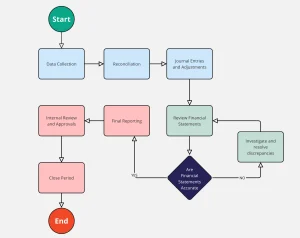
As we head into the final days of March, investors will be keeping a close eye on tech earnings. In addition to GDP, almost a third of S&P 500 companies are scheduled to report quarterly results this week. As such, investors are worried about the looming threat of a recession. In this context, it’s no surprise that tech stocks ended lower today. A snap warning, followed by a disappointing earnings report last week, may have pushed some stocks lower. Meanwhile, Apple and Amazon fell less than 1% each.
After the bell on Tuesday, Alphabet Inc. GOOGL, Amazon and Microsoft Corp. MSFT reported earnings. Both companies missed earnings estimates and revenue expectations, and investors are dumping these expensive stocks. In addition, Merlis says investors are worried about advertising spending because they have a heavy reliance on these companies. For example, Amazon’s stock fell nearly five percent, while Meta fell 4.5%. The Nasdaq slipped as well, driven lower by weakness in megacap tech.
Despite disappointing Snap Inc. earnings, the market is seeing support from general Q2 earnings optimism. Meanwhile, energy stocks continue to move higher, with crude oil up more than 1%. In addition, the recent data on the national activity index from the Chicago Fed remains bearish, with the outlook for manufacturing activities down to a two-year low. With that, investors are likely to be cautious going into this week.
On Monday, Wall Street stocks were choppy as investors awaited the release of Big Tech earnings. Meanwhile, the Federal Reserve is set to make a decision on its interest rate on Wednesday afternoon. As such, Kiplinger’s FREE Investing Weekly e-letter provides stock and mutual fund recommendations for the week ahead. After the opening bell, the S&P 500 gained 0.1% and the Nasdaq slipped 0.8% to 11,782. Marvell Technology, Nvidia, and Cisco were among the semiconductor stocks that fell the most.
Charles Schwab Corp fell 9.4% on Friday after missing quarterly profit estimates. Twitter rose 7.5% on Friday after the company adopted a “poison pill” to rein in Tesla CEO Elon Musk. Didi Global Inc. slumped 18.3% ahead of its extraordinary general meeting on May 23. This Chinese company has been planning to delist itself in the U.S. on May 22. As we head into May, the S&P 500 has recorded 27 new 52-week highs and 397 new lows.
As we head into the final months of the year, investors should be aware of the looming bear market. It may be a short-term adjustment. After all, the market is a living organism. The bear will come and go. So the question is, when should we start investing again? The answer is in the fundamentals. If we follow these fundamentals, the market could be a good year for returns.
After the recent sell-off at Target, Wall Street responded by cutting its profit forecast for the second quarter and the entire year. This is a particularly rare warning in the middle of the quarter, but it still raises eyebrows. Target fell 3.6%, Macy’s dropped 7.2%, and Kohl’s plunged 9.1%. The market will continue to be on the lookout for a signal of the Fed’s next move.


